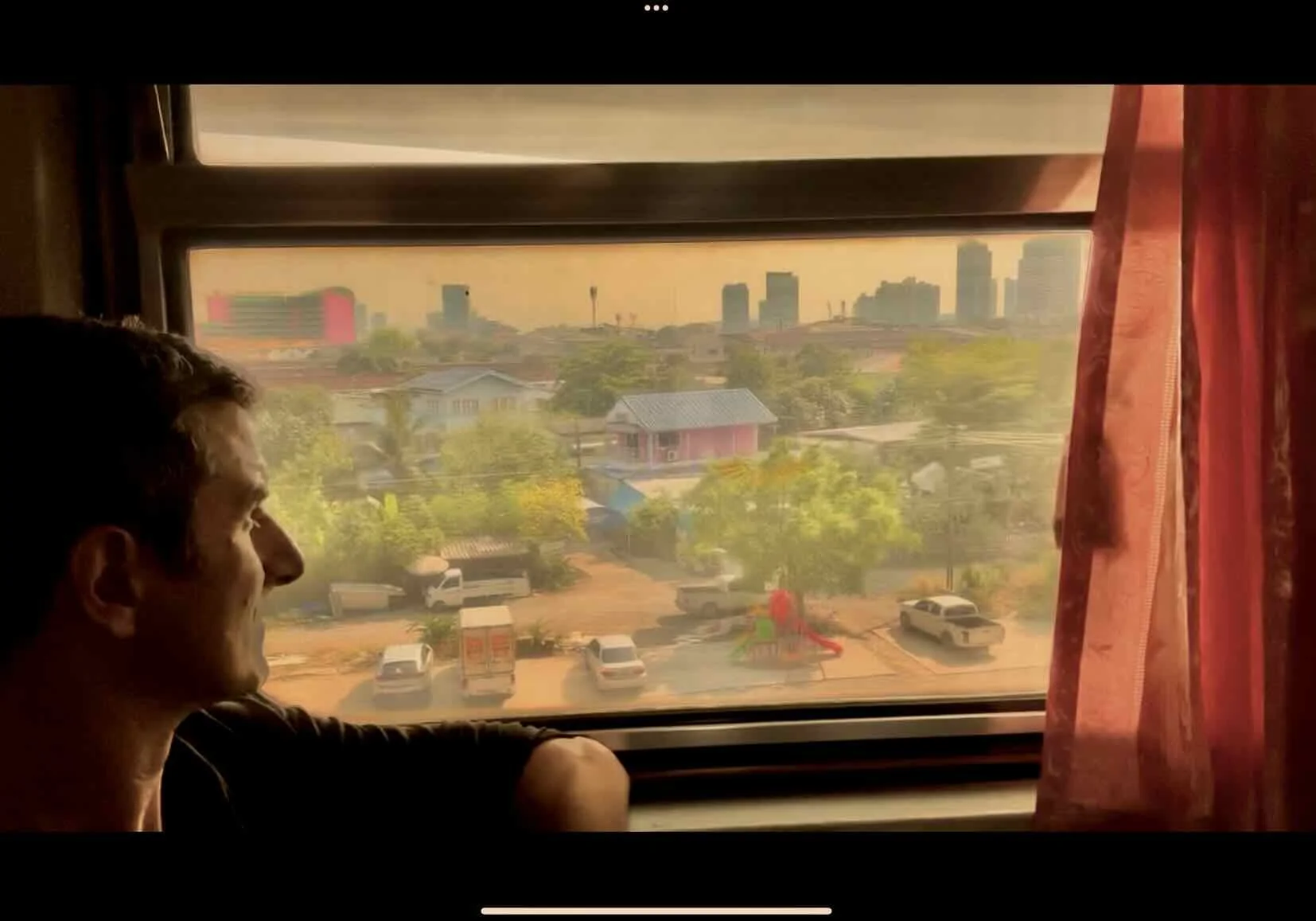Flight Shaming
Unfortunately the departures board displaying journey times at Bangkok's Krung Thep Aphiwat railway station really was telling the truth - my first taste of flygskam was going to involve spending twenty-one hours in a railway carriage.
Although it might sound like a tasty Scandinavian snack, flygskam is actually Swedish for "flight shame" and is the name of a movement that calls on people to ditch travel by plane in order to help save the planet. It has had quite an impact on travel in Europe in recent years with momentum there helped by the fact that travelling by high-speed train can result in similar or even shorter journey times than taking the plane once out-of-town airports and cumbersome security checks are factored in.
But could it catch on in Asia too? I had decided to find out on a trip from Bangkok to Singapore, a distance of about 1,800 kilometres that would normally take two and a half hours by plane. The land-based competition wasn’t looking promising however, as in that time my train would only have completed a tenth of its total journey. And the kicker was that when it finally did reach its destination, a further eighteen hours later, I would still only be at Thailand’s southernmost border with Malaysia, which is as close to Singapore as it’s possible to get on a direct train from Bangkok. Once I’d crossed over the frontier, I would need to take a taxi to reach the railhead on the other side, wait another eight hours for my next train, chug for a further sixteen hours down the Malay Peninsula to the city of Johor Bahru, and then finally make the short hop over the narrow strait that separates Malaysia from Singapore.
But thankfully slow travel has an appeal in and of itself, as you get to experience and truly appreciate the distances, landscapes and cultures that separate your departure and arrival points, all served up as a gently rolling narrative. As I got underway, the expressways and high-rises of Bangkok gradually dissolved into villages and temples and then buffalo-specked rice paddies that sparkled in the afternoon sun. By the time that sun had set and then risen again, thick jungle had taken over as the backdrop outside the window and the temples had been replaced by mosques.
I was now clanking through Thaiand’s deep south where the majority Muslim population has long sought more autonomy from the rest of this predominantly Buddhist country, a struggle that has sadly turned more violent in recent years. A few months back, insurgents had blown up a train on this very track and an army patrol along the line had been attacked shortly before the start of my current journey. While I would have been oblivious to such events at 30,000 feet, as we arrived at the south’s Hat Yai Station, nervous-looking, heavily armed soldiers were patrolling the platform. Two of them then climbed into my carriage as the whistle blew and stayed there for the rest of the journey - a very real reminder of what was happening just outside my window.
Happier cultural flavours also came aboard in the form of mobile buffets, with food vendors clambering on at each station to speed-hawk their areas' culinary specialties, far eclipsing anything I could have hoped for from in-flight catering. Then, when I had eventually disembarked, crossed the border, and got myself over to the Malaysian railhead, my layover there beat any soulless airport cafe hands down given that it included watching a cricket match and chatting to locals over tea out about everything from the recent harvest to upcoming provincial elections.
Back on board again, I could also indulge in the guilty pleasure of voyeuristic travel, as the separation that the train enforces from the outside world, the fact that you can’t just stop and interact with it, means you can get away with much more staring. That kind of insulation also means train tracks don’t foster development around themselves like roads do, so you get to pass through the kind of remote country that you would never otherwise see.
Pushing on down the length of the Malay Peninsula, I soaked up rolling hills and relaxed villages of stilt houses and grazing livestock for a while before we entered a seemingly endless maze of oil palm plantations. These stretched on for hours, bringing home the environmental impact of this controversial crop's cultivation in a way that no news story or statistic could ever have managed.
As I finally crossed the strait from Malaysia into Singapore, the contrast of the city-state's hyper-organization and clinical sheen jolted my senses, proclaiming its status as the region's precocious outlier in a way it never had when I arrived by air.
Yes, it had taken two and a half days rather than two and a half hours, but I was no longer seeing the journey as a means to an end, but rather as part of the destination itself. After all, if we seek out new places because of our innate curiosity, our craving for the stimulus of something different, then why not make the journey a part of that too? It’s another reason why taking the plane can sometimes be a real shame.





